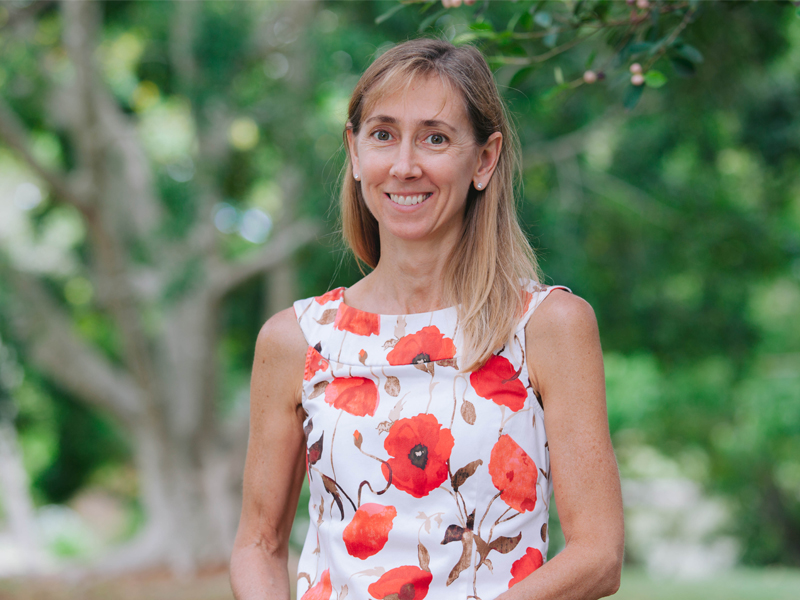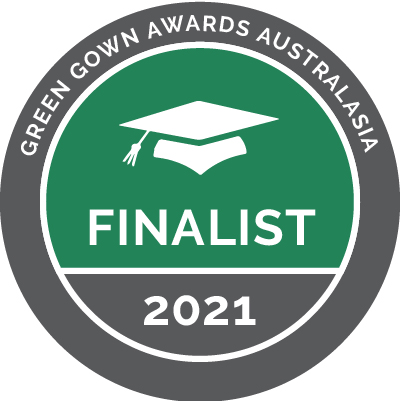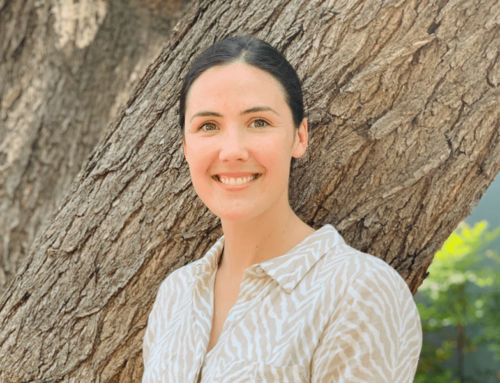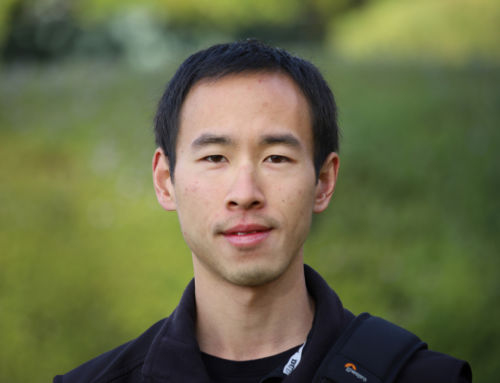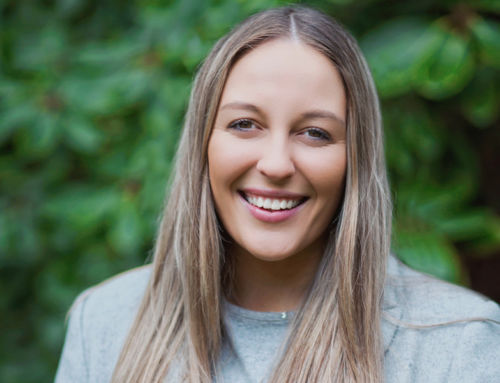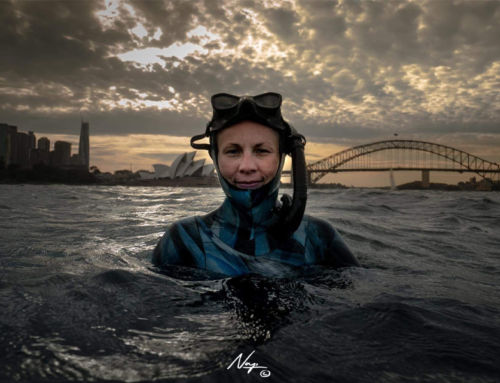University of Queensland
For more than a decade, Suzanne has championed sustainability engagement, programs and awareness at the University of Queensland. Driven by the fundamental principle that “no action is too small, and an action can ripple and impact others ‘like a pebble in a pond’”, Suzanne believes universities offer a unique opportunity to positively influence the leaders of tomorrow. She has brought to life diverse sustainability projects, many of which may never have got off the ground without her dedication and enthusiasm.
Suzanne spearheaded data collection and reporting for AASHE’s international STARS program, where UQ achieved Silver in its inaugural report. She consulted with the UQ community over many months to gather feedback and write the new 2021-2025 Sustainability Strategy. She was instrumental in developing the current UQ Green Ambassador Program. She also established Sustainability Week, now in its ninth year. Passionate about professional development, Suzanne has mentored 14 students working in the sustainability office since 2011, advising and encouraging them to achieve. Through these and a myriad of other small actions, Suzanne has indeed had a ripple effect, helping mould UQ Sustainability to what it is today.
> A closer look
Suzanne has contributed significantly to UQ Sustainability, both within its operations and the student/staff experience. Always encouraging the UQ community to create their ‘pebble in the pond’, Suzanne has facilitated diverse opportunities for groups and individuals to increase their sustainability in ways that make sense for them. For example, having been instrumental in establishing several ‘green’ programs that focused on staff behaviours and resources, Suzanne observed there was no program specifically for students. When the idea of a student-focused program was suggested by the students themselves in 2019, Suzanne was first in line to offer her help.
Over the past 18 months, she has worked closely with several students to develop the idea into the Green Ambassador Program (GAP), which was implemented by a student employee under Suzanne’s guidance. The program is now the main avenue for students to contribute to UQ Sustainability, enabling networking, volunteering opportunities, education and advocacy, and professional development. GAP is run for students, by students – and Suzanne has been instrumental in providing support to make this happen. A Sustainability Council comprising six student volunteers is facilitated by a student employee, whom Suzanne also mentors. She seeks to provide targeted professional development opportunities for the Council, increasing the students’ breadth of experience. She also enlists other staff to aid in this pursuit, giving the students the chance to work with several different areas of a professional corporate team. These outcomes would not have been possible without Suzanne’s facilitation and encouragement.
With this same goal of nurturing grassroots sustainability innovation, Suzanne supported establishing the UQ Green Fund. Since July 2019, four student projects have been given total funding of around $1,200. As evident, this fund is not about making big financial investments in large initiatives. Rather, it is yet another way of encouraging the small ideas with big impact.
Suzanne has mentored 14 student employees in the UQ Sustainability office since 2011. The main avenue for this is the Green Programs’ Assistant, a 12-month role for students to gain skills in organisational sustainability. Suzanne facilitates this, alongside a number of other student positions that contribute to operations.
An annual event that encourages everyone’s sustainability passion is Sustainability Week. Established by Suzanne nine years ago, she continues to be the driving force behind the event. Sustainability Week has become a popular and anticipated event within UQ and the wider community, promoting sustainability through individual actions, organisations and research. Creating a festival-like atmosphere on campus, Sustainability Week hosts a number of smaller events in person and online, such as documentary screenings, repair cafes and vegan food trucks. In 2020, Sustainability Week hosted 44 events (mostly online), reaching at least 370,000 people online. Sustainabilty Week is the result of months of planning on top of Suzanne’s regular portfolio obligations.
In addition to student engagement activities, Suzanne is responsible for driving results in organisational sustainability. A significant recent achievement has been to establish a rigourous sustainability reporting framework within UQ that allows for global benchmarking within the tertiary education sector. This project involved collecting, for the first time, sustainability data from across the University (including academic, engagement, operational, administration and innovation divisions). Suzanne then used the data to compile UQ’s unaugural report in October 2020, to STARS, a program of AASHE. UQ achieved an initial Silver STARS rating (currently working towards gold), a testament to the University’s sustainability efforts over the past decade. The report submission raises the profile of UQ’s performance, increases accountability and creates new opportunities to engage.
Finally, another largescale sustainability project that Suzanne has recently completed is the University’s first whole-of-university sustainability strategy. Applying a grassroots approach to macro sustainability principles, Suzanne ran consultation sessions with 250 students and staff over three months in 2019 to gather intel for the strategy. The results of which are outlined in the impacts and benefits section below. The STARS report also informed the strategy, highlighting the University’s strengths and areas for improvement.
Again, it is only thanks to Suzanne’s initiative and extra commitment beyond the call of duty that the University has this data available to assist its sustainable decision making. From all these actions, Suzanne has created many ripples that have had impact on UQ’s structure, staff cohort and student experience. Many were of Suzanne’s own volition to pursue, outside of her listed role responsibilities, and took substantial extra time and commitment.
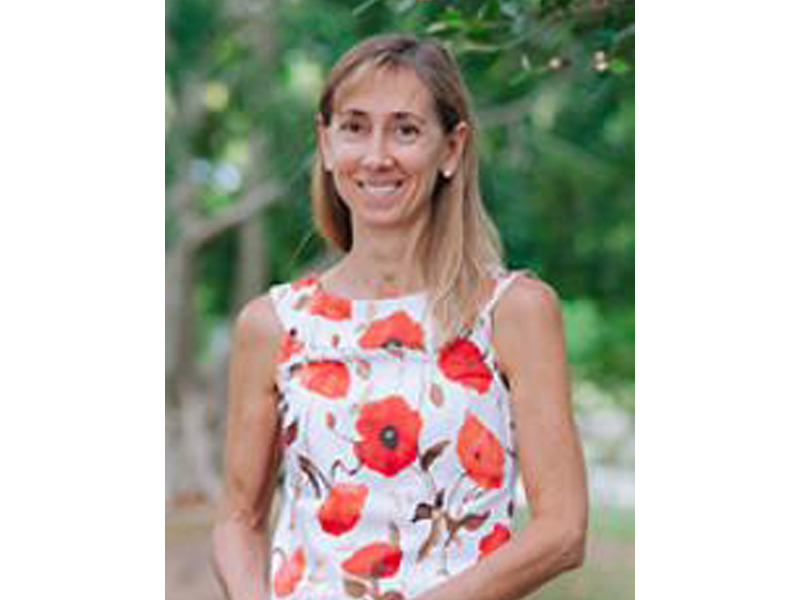
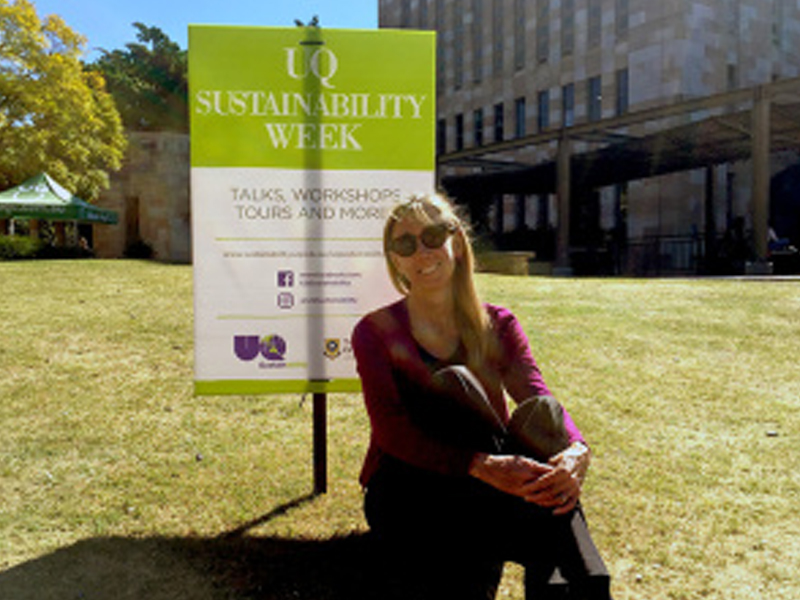
> Impact and benefits
Through the aforementioned actions Suzanne has undertaken to go above and beyond – encouraging UQ’s staff and students to create their ‘pebble in the pond’ – there have been many benefits and impacts. By helping to develop, facilitate and launch the Green Ambassador Program, Suzanne has not only given student employees and council volunteers the opportunity to learn how to run a university-wide initiative, but she has facilitated the opportunity for hundreds of students (nearly 700 across the program’s social media channels) to engage with a central sustainability program. This has afforded them networking with like-minded peers, opportunities to attend sustainability-related events, volunteering experiences, and diverse education about the environment and sustainability.
Meanwhile, implementing the Green Fund grant program in 2019 has allowed students the freedom to brainstorm exciting and progressive sustainability initiatives that can be conducted on campus to the benefit of the whole UQ community. Through the establishment and running of this fund, Suzanne has provided resources to help students to create lasting change. Since 2019, four student projects have received a total of around $1,200 to fuel sustainability outcomes. Inviting student employees into the UQ Sustainability office not only impacts the students’ future prospects, but positively impacts the workplace too.
With new students bringing in fresh ideas, UQ staff have often been inspired to explore new opportunities or try problem solving in new ways. Every student brings something different, and the partnership is mutually beneficial. As such, working in the UQ Sustainability office has become a well-regarded position and something sustainability-minded students aspire to be a part of. Since 2011, Suzanne has mentored 14 students, including those who have worked directly with the UQ Sustainability office, those who have been part of student-staff partnerships, and those who have conducted research and other smaller projects with the team.
Establishing Sustainability Week, and running it for nearly a decade, has enabled Suzanne to turn this week-long event into something of an institution at UQ. The week is not only a social experience for the UQ community, but it engages the broader communities around UQ campuses, too, further extending the number of people who can become involved in the University’s sustainability activities. An unexpected positive outcome was the increased outreach that the 2020 Sustainability Week had, with majority of events being online. This allowed UQ and the general community, especially those who lived away from the campuses, to become involved in the festivities. Online, this culminated in at least 370,000 participating across all events.
Returning to the sustainability strategy, Suzanne’s diverse consultaion and engagement delivered a rich collection of qualitative and quantitative data for the strategy. Her surveys of more than 250 studetns and staff over three months captured 1,950 individual ideas, categorised into 500 unique suggestions. This process enabled the new UQ Sustainability Strategy 2012 – 2025 to be a true reflection of community priorities and commitments. Returning to the aforementioned philosophy, this approach will hopefully create many pebbles in the pond to ensure UQ meets its sustainability goals.
In general working life, Suzanne’s hard work, deep consideration of topics, and open nature makes her naturally approachable, while also motivating other team members in their own portfolios. Such has been the impact of Suzanne’s mentorship, that this Green Gowns nomination has in fact been student-led and, for the most part, student written, with three of Suzanne’s mentored students and young colleagues collaborating to put together the submission. Verbatim feedback from these students and colleagues illustrates how invaluable Suzanne’s guidance and expertise has been in the workplace: “Suzanne is the best mentor and supervisor I could have hoped for. Without her, I don’t think I would have learned or achieved as much as I have in my 24-month student employment role. She goes above and beyond to make sure all the students in the office are looked after, have the confidence to pursue ideas and have access to her expertise should they need it.” (Emily Conn, 2021 Green Programs’ Assistant).
“Suzanne is a pillar and a powerhouse within the UQ Sustainability Office. Without her consistent dedication to and championing of sustainability within UQ over the past 10 years, the engagement UQ Sustainability receives both within the university and externally could not have grown to be what it is today. She persists everyday to improve the sustainability of UQ in everything she does, while supporting those lucky enough to work with her to do the same.” (Sophie Rutter, Sustainability Engagement Assistant)
“Suzanne has played a crucial role in improving UQ’s sustainability performance and outreach. Not only has she established, supported, and empowered grassroots community engagement programs such as the Green Ambassador Program, the Green Office Program, and the Green Fund, but she has also mastered the ability of communicating the need for, and progress of, sustainability at The University of Queensland.” (Cassidy Mogg, Sustainability Engagement Officer)
“Without Suzanne, UQ wouldn’t have a fabulous silver STAR rating (or a rating at all, if she hadn’t reported our data). We wouldn’t have the Green Ambassador Program, outstanding Green Office Program, Green Fund, or even an as-comprehensive Sustainability Strategy. She works so hard, and UQ is so much better for it.” (Emily Conn).
> Leadership and engagement
Suzanne’s actions are distinctive and provide strong leadership in the sustainability space. Her output aligns not only with her portfolio and the strategies of UQ, but speaks to her personal motivation to improve sustainability outcomes at UQ. Her role is an Environment and Sustainability Program Officer, working within the UQ Sustainability office, which sits under the Properties & Facilities division. The office concentrates on engagement and student/staff sustainability experience, as well as the sustainability operations of waste, water, energy and procurement. UQ’s vision is ‘knowledge leadership for a better world’ and its aim throughout its areas of influence is to ‘create change’. Working across both the division’s engagement and operational arms, Suzanne delivers daily against these edicts. Her initiatives directly impact the operation of UQ in a more sustainable manner through science and leadership, and changing practices for more informed decisions.
As demonstrated, Suzanne’s actions regularly go above and beyond her formal responsibilities, from consulting hundreds of staff and students to contribute to the Sustainability Strategy, to mentoring many students. Her actions have raised the profile of UQ not only locally, but in the national and international sustainability space with participation in initiatives such as the STARS rating system. Suzanne also focuses on sharing and disseminating sustainability messages, coordinating regular communications to the wider community to generate sustainability engagement. Pertinent announcements are made regularly on UQ Sustainability Facebook and UQ Sustainability Instagram. Events, news and blogs are published on the UQ Sustainability website, disseminated via disional newsletters, and sent to all UQ staff through the weekly University email newsletter, the UQ Update. Suzanne values the benefits of sharing and learning with other universities and regularly networks with the ACTS STARS cohort and the Group of Eight sustainability network, and participates in AASHE’s mentoring program by currently working with Colorado State University.
> Wider societal impact
Suzanne’s actions at UQ have had a wide societal impact. She believes universities are in a unique position to influence the leaders of tomorrow and the direction of future research. A ‘pebble in the pond’ at a university can create lifelong ripples, she believes. It is Suzanne’s hope that the current engagement and student programs she has helped to build, and those students she has mentored, will make ripples in the wider community, both now and into the future.
As a large, ACTS and Group of Eight institution, UQ is in a unique and privileged position to influence sustainability locally, nationally and internationally. Suzanne’s actions aim to maximise the University’s potetial and position. In addition to the immediate positive outcomes of her projects, Suzanne aims to motivate others to undertake similar initiatives, creating more ripples. For example, the student-led Green Ambassador Program offers networking and volunteering opportunities with environmental organisations outside of UQ, such as bushcare groups, as well as other community and university organisations. This spreads the word of UQ Sustainability to outside organisations, spurring them to do more, and highlighting the organisations UQ collaborates with in their own right.
The general community is positively influenced by UQ through the University’s public events, which spread sustainability into the community and motivate individuals to do more. UQ Sustainability’s achievements inherently signify that a large-scale, public institution values sustainability, and it is therefore valuable in the wider world. This can motivate policy makers, businesses and those in power to take environmental action. Overall, the legacy of Suizanne’s actions within the UQ Sustainability office is that the University now has numerous ways to engage its community with sustainability. UQ itself also operates more sustainably thanks to several of Suzanne’s initiatives. As an output of her dedication to mentoring and broader engagement, future professionals will enter the workforce with sustainable and circular economy thinking, and a passion to make a difference. The pebbles thrown into the pond at UQ will ripple out through the students it educates, causing waves within the world to ‘create change’.

